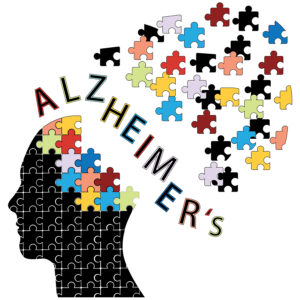What Should You Know About Late-Stage Alzheimer’s?
It can be difficult for everyone when their elderly loved ones face the late stages of Alzheimer’s disease. However, you can get through it. Start by learning all you can about the progression of the disease. You should also learn how you can provide quality care for your elderly loved one. Just remember it is important to speak with your elderly loved one’s medical team before you begin any type of treatment or in-home care.
How long will the late-stage of Alzheimer’s Disease go on for?

There are factors that come into play regarding how long a person will be in late-stage Alzheimer’s. Some of these factors include the following:
- Age of the patient
- The overall health of the patient
- The mental capacity of the patient
Some studies have shown that the life expectancy of an Alzheimer’s patient is about 8.3 years. This is based on people who are diagnosed at the age of 65. Remember this is only an estimation of how long someone can live with late-stage Alzheimers. It is best to speak with your elderly loved one’s doctor for more information about this disease.
What are the symptoms of late-stage Alzheimer’s Disease?
A few symptoms of early-stage Alzheimer’s disease usually include misplacing items such as a remote or toothbrush. People also tend to start forgetting events. As the disease advances, so do the symptoms. Some symptoms of late-stage Alzheimer’s disease include the following:
- Inability to walk
- Inability to sit
- Unable to communicate effectively
- Unable to swallow or even hold the head up
Many people with late-stage Alzheimer’s disease are also more prone to getting infections. They need in-home care 24/7. This is another reason it is essential to speak with your elderly loved one’s doctor. You need to make sure that you understand the resources available for your elderly loved one during this stage of the disease.
What should you know about the late-stage of Alzheimer’s Disease in regard to sleeping?
Many people in the late stages of Alzheimer’s have trouble sleeping. They often stay awake for long periods of time and tend to wander off. In addition, some Alzheimer’s patients want to take naps throughout the day and have trouble sleeping at night. Many patients experience sundowning which means they get agitated during the evening and night. If you find that your elderly loved one is having trouble sleeping you should speak with their doctor to find a way to handle this.
Conclusion
There is a lot to understand and learn about late-stage Alzheimer’s disease. For more information about this disease, you should speak with your elderly loved one’s medical team or an in-home care provider.
Sources: https://www.nia.nih.gov/health/alzheimers-disease-fact-sheet
https://www.cdc.gov/features/alzheimers-disease-deaths/index.html
If you or an aging loved-one are considering In-Home Care Services in the Overland Park KS area, please contact the caring staff at Elder Care of Kansas City, today. Proudly serving Jackson, Clay, Platte and Cass Counties in Missouri as well as Johnson and Wyandotte Counties in Kansas for over 30 years. Call us at 816-333-3322.
- Smart Ways To Make Showering Safer For A Senior Parent - May 16, 2025
- What Types of Situations Lead to Personality Changes in Seniors? - May 6, 2025
- Helping Seniors Overcome Insomnia - April 21, 2025
